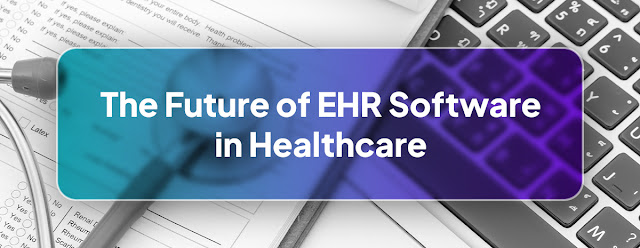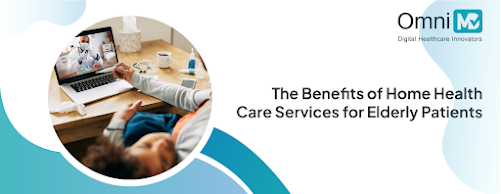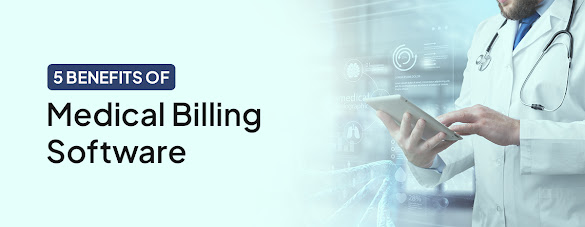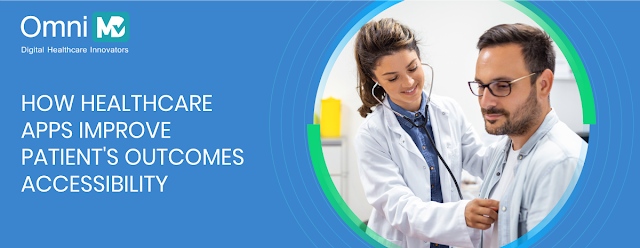The Future of EHR Software in Healthcare
 |
Undeniably, EHRs are revolutionizing how patient care is delivered and how patient history and clinical data are accessed and read. Although EHR Software has been around for several years, it only became popular after 2009 when the Health Information Technology for Economic and Clinical Health Act (HITECH Act ) was passed by Congress. Although several healthcare providers have adopted EHR system software, there is much talk about the future of EHRs in healthcare. So, what is the future of EHRs, and what are the market trends about this topic? The future of EHR is promising, as identified by the following points:
1. Lowering
Implementation Costs
Since EHR software saves time and effort, players in the healthcare space will deploy methodologies that will save money to lower implementation costs. This will further reduce the EHR cycle times to enable continuous delivery of client-essential operations. Future EHR System Software will include language processing and voice assistance, further streamlining records entry and search. EHR systems will evolve into extensive digital healthcare platforms providing customizable user experiences.
Patient care will be boosted through easier accessibility and shorter time per patient while increasing patient data accuracy to lower errors. Interoperability will enable quicker and better patient care and decision-making by healthcare providers. Future EHR platforms will include telehealth platforms that will further boost patient services, including faster maintenance and tracking of records. EHRs will also incorporate emphatic and helpful chatbots that will be integrated with platforms to enable easier access and solutions for patients and providers.
Further, IoT has the potential to improve EHR in several ways. IoT will play a significant role in remote patient monitoring. Connected devices that capture vital patient parameters such as heart rate, oxygen saturation, blood sugar level, and body temperature are being integrated with EHRs for data transmission so that doctors can assess and adjust treatment and doses accordingly. Thus, this has made it possible to deliver personalized treatment plans regardless of the patient's location. Furthermore, IoT has made it possible to track medication intake through smartphones and sensor technology. Soon, consolidation of this technology will enrich old platforms and allow for remote treatment of patients at a better level. Thus, we are looking at a scenario in which IoT will help EHR Service Software plays a significant role in boosting patient and provider relationships. They will enable faster decision-making and personalized recommendations for improved patient care.
4. Improved Interoperability
In the foreseeable future, EHR systems may communicate with other systems seamlessly. Thus, records will be accessible easily from anywhere. However, that is not the case today. Medical records today are available in a variety of forms and formats. This makes it difficult for providers to view them as they do not have the software in place to view them. This makes sharing data in a secure and streamlined way the biggest priority for EHR systems in the future.
5. Security and Privacy Improvements
Since EHRs contain a large amount of private information, security is always a significant concern. At the same time, the healthcare industry has suffered several data breaches over the last decade. These data breaches have been extraordinarily embarrassing and expensive as well. This sector is also uniquely vulnerable to insider threats. The coming generation of EHR service software will need to consider new strategies to prevent the inappropriate use of sensitive healthcare information. Thus, such devices will incorporate several features to mitigate such instances.
6. Offer Improved Decision Support
Today, EHRs can offer much more health information than just providing a digital version of paper sheets containing patient details. Future generations of EHRs are expected to offer better and improved decision support to help patients make informed decisions about their health.
7. Better Usability
In their current avatar, EHRs (Electronic Health Records Software) are seen as imposing a tremendous administrative burden on healthcare professionals. According to a 2017 study, it was found that a clinician spends about six hours of their day in their interactions with EHR software. This perhaps explains why burnout and stress are so common in the healthcare industry. EHR systems must be designed with input from medical professionals to meet their present-day needs. In the future, it will be possible to develop EHRs that meet the needs of the medical fraternity. Therefore, EHR developers can create better EHRs so that such systems can eliminate awkward manual processes that contribute to burnout and human error.
Conclusion
Today, participatory healthcare is the new buzzword. Patients and healthcare providers collaborate. EHRs will be pivotal in enabling better patient outcomes and providing clear benefits for the entire healthcare system soon. Contact Us to know more!



Comments
Post a Comment